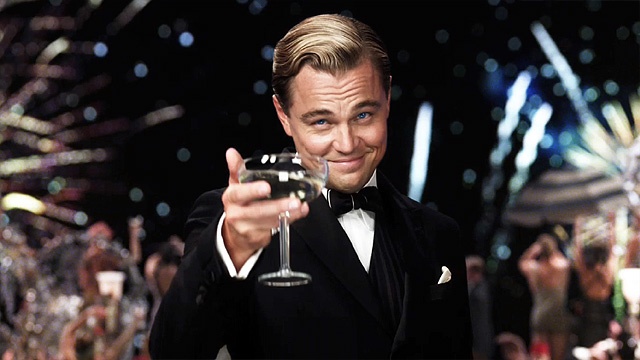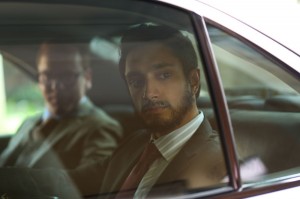I can see you
 After I walked out of Now You See Me, a caper film about four magicians who become master thieves and the FBI agents trying to stop them, I began to overthink the twist at the end. I won’t reveal it, because that would be unfair, but it made me question some of the opinions I developed while I was watching the film. At one point, I had leaned over to my boyfriend and asked, “Why are the magicians so well written and the cops so badly written?” The question at first was rhetorical; I was really asking the world why bad screenwriters exist. Then the question was real: Was it deliberate? Did we need to see the movie all over again with the knowledge of the twist? The answer to the second question is no. I don’t need to see it again. The movie wants to be Oceans 11 crossed with The Prestige crossed with The Usual Suspects, and as fun as it is in places, Now You Seem Me is an illusion, a mediocre film pretending to be a good one.
After I walked out of Now You See Me, a caper film about four magicians who become master thieves and the FBI agents trying to stop them, I began to overthink the twist at the end. I won’t reveal it, because that would be unfair, but it made me question some of the opinions I developed while I was watching the film. At one point, I had leaned over to my boyfriend and asked, “Why are the magicians so well written and the cops so badly written?” The question at first was rhetorical; I was really asking the world why bad screenwriters exist. Then the question was real: Was it deliberate? Did we need to see the movie all over again with the knowledge of the twist? The answer to the second question is no. I don’t need to see it again. The movie wants to be Oceans 11 crossed with The Prestige crossed with The Usual Suspects, and as fun as it is in places, Now You Seem Me is an illusion, a mediocre film pretending to be a good one.
The movie begins with four street magicians – slight-of-hand entertainers like David Copperfield, not Harry Potter wizards – getting recruited by a mysterious benefactor who gives them the plans for a bunch of elaborate tricks. A year later, now dubbed the Four Horsemen, Daniel (Jesse Eisenberg), Merritt (Woody Harrelson), Henley (Isla Fisher), and Jack (Dave Franco) are putting on a massive stage show at the MGM Grand in Las Vegas, produced by billionaire Arthur Tressler (Michael Caine). As their final trick, they teleport one of their audience members to a bank vault in Paris and steal three million euros and then rain the cash onto the audience. This heist brings in the FBI, led by Dylan Rhodes (Mark Ruffalo), as well as a beautiful Interpol agent named Alma Dray (Mélanie Laurent). The Four Horsemen also spark the interest of professional magician debunker Thaddeus Bradley (Morgan Freeman, sleepwalking again). For the next hour and half, the magicians put on shows, steal money, and give it away while the FBI fail to stop them and Bradley chuckles. There are deeper mysteries involved, as well as old rivalries and large egos. It all ends exactly as the mysterious benefactor planned, and you may or may not be surprised who that is.
The best part of the movie, as I allude to above, is when the magicians are at work. Eisenberg and Harrelson are both given delightful dialogue, and they are experts at portraying mischievous arrogance. The filming of the stage shows, as well as the more minor tricks, usually made at the expense of the FBI, is where director Louis Leterrier, who gave us the fun Transporter movies as well as dreadful Clash of the Titans remake, does his best work. These scenes are thrilling, funny, and even beautiful. He also, not surprisingly, gives good action, but the car chases are not nearly as a good as the fist fight between Franco and Ruffalo. However, when the focus turns to just Ruffalo, Laurent, and the rest of the fumbling FBI, the dialogue dumbs down dramatically, and the flirtation between Ruffalo and Laurent is simply terribly written and acted, a rather astonishing feat considering the prowess of those two actors. And unfortunately, the balance between FBI and magician tips towards the cops in the second half of the movie, and I found myself asking that question about why the cops are so badly written.
I had too many questions, not just about aesthetic quality, but also about plotting, logic, and coherence. When you’re trying to pull off an ending inspired by The Usual Suspects, you can’t leave the audience asking as many questions as I did. Okay, it is possible I just need to see Now You See Me again. And if it comes on cable some lazy afternoon in a year or so, I may watch it looking for the “A-ha!”
Now You See Me
Directed by Louis Leterrier
Written by Ed Solomon, Boaz Yakin, and Edward Ricourt
Starring Jesse Eisenberg, Mark Ruffalo, and Morgan Freeman
Rated PG-13
At your local multiplex



